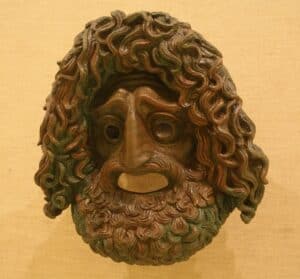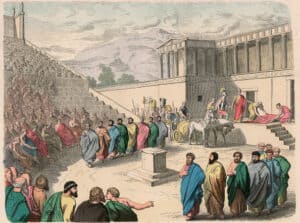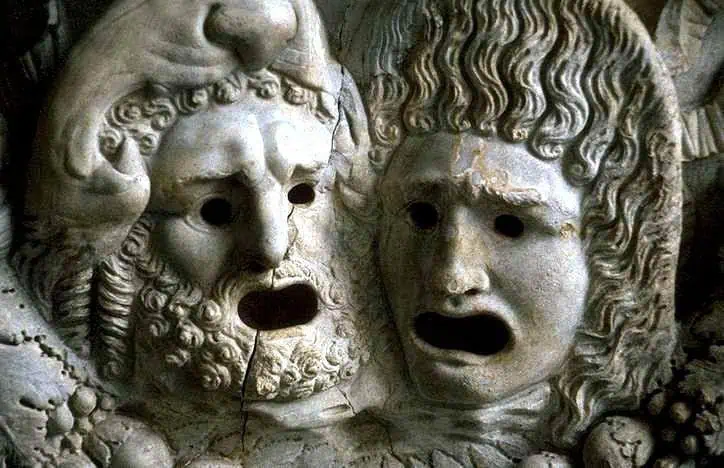Long before Shakespeare, Ibsen, or modern cinema, the world was introduced to some of the most profound and emotionally gripping storytelling through the lens of Greek tragedy. Born in ancient Athens during the 5th century BCE, this dramatic form explored the deepest corners of human experience: fate, suffering, justice, and the gods.




Origins in Ritual and Religion ⛪
Greek tragedy began as part of religious festivals in honor of Dionysus, the god of wine, fertility, and theatre. These festivals, particularly the City Dionysia, brought thousands of Athenians together to witness performances that combined poetry, music, and dance in a powerful communal experience.
The playwrights were not merely entertainers; they were philosophers, civic commentators, and cultural critics. Figures like Aeschylus, Sophocles, and Euripides elevated theatre into a space of deep reflection and public dialogue.
Themes That Still Resonate 🤌
Greek tragedies are often driven by a central question: Can human beings escape their destiny? The answers—delivered through blood, betrayal, and divine intervention—are often bleak, but always compelling.
Some recurring themes include:
- Fate vs. Free Will: Heroes often try to defy prophecy, only to fulfill it.
- Hubris: Excessive pride leads to downfall.
- Moral Conflict: Characters are torn between personal desire and public duty.
- Divine Justice: The gods are present, often indifferent, and always powerful.
Whether in Oedipus Rex, Antigone, or Medea, these themes continue to inspire playwrights, authors, and filmmakers to this day.
Structure and Style ✍️
Greek tragedies were meticulously structured:
- A prologue sets the stage.
- The parodos introduces the chorus.
- Multiple episodes present the unfolding drama.
- The choral odes offer commentary and emotional resonance.
- A catastrophe leads to the inevitable downfall.
The chorus served as the moral and emotional compass of the story, connecting the audience to the characters’ inner turmoil and societal dilemmas.
Why It Still Matters 🚀
Greek tragedy remains a cornerstone of Western literature and theatre. It shaped concepts of storytelling, dramatic tension, and character development. The psychological and philosophical depth found in these plays laid the groundwork for everything from modern drama to existential philosophy.
Even today, performances of Greek tragedies stir audiences with their timeless relevance and emotional intensity.
Join Us for “Fate and Fury: The Heart of Greek Tragedy” 🎭
On August 11, join us for a live virtual event exploring the essence of Greek tragedy. Titled “Fate and Fury: The Heart of Greek Tragedy”, this immersive experience will dive deep into the emotions, ideas, and legacy of ancient drama—guided by an expert passionate about ancient Greek culture.

🔗 Reserve your place here and connect with the ancient world in a powerful new way.
#GreekTragedy #AncientGreece #GreekDrama #FateAndFury #Oedipus #Antigone #Medea #TheatreHistory #Dionysus #ClassicalLiterature #LiveVirtualTour #WorldVirtualTours #GreekMythology #CulturalHeritage #GreekTheatre #EpicDrama #GreekPhilosophy #TragicHeroes #TimelessThemes #DramaLovers




 ENSURE you DID IT in the previous step
ENSURE you DID IT in the previous step

 and
get the Zoom Link directly
and
get the Zoom Link directly 
